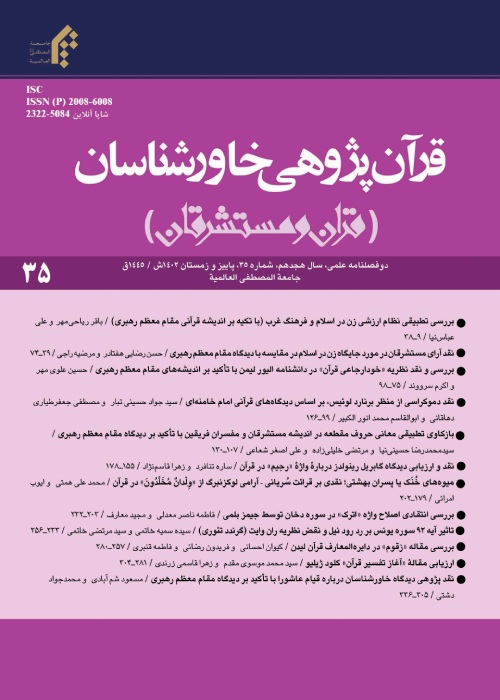A Critical Examination of the Influence of Orientalists’ Historical Methods on Muhammad Shahrur
Many contemporary intellectual trends and movements seek to confine the true understanding of religion within their own frameworks. Religious texts, even after 14 centuries since the emergence of Islam, continue to be the subject of debate and scrutiny by scholars. Some scholars consider these texts to possess divine truth, while others label them as mere texts in order to facilitate their historical analysis. The primary and ultimate goal of religious texts is to guide humanity. However, certain trends attempt to approach religious texts with leniency and a materialistic perspective that considers matter as the governing force of thought. Shahrur is among those who have been influenced by Marxism, which stands in contrast to idealistic perspectives that consider thought as the governing force of matter. In both views, there is a connection between thought and matter, which shows a kind of disregard and oversimplification, and has caused each of them to adopt a different and sometimes opposing method. Heritage, consisting of religious, moral, and social values, shapes the identity of every Muslim individual. One of the most important reasons for returning to heritage is that throughout Islamic history, there has not been a single influential and significant event other than the phenomenon of revelation. This revelation brought about the Quran, the Prophetic tradition, and the Ahl al-Bayt (the Prophet’s household), leading the nascent society of the pre-Islamic era towards civilization and introducing them to other nations through the teachings of the Prophet and the conquest of other lands. Shahrur, with his traditionalist Salafi thought, opposes this progress and considers it an obstacle to growth and modernization, resulting in stagnation in science and technology. He dissociates himself from traditional heritage and regards all Islamic heritage as traditional while simultaneously embracing Western and Orientalist heritage, which is summarized in materialism. His adherence to Western materialism has led him to deny the divine nature of the Quran and consider it as a historical text. This paper delves into the roots and foundations of Shahrur’s modernist ideas, demonstrating that they are all derived from Western Orientalist and Marxist thought. Furthermore, it critiques these foundations.
- حق عضویت دریافتی صرف حمایت از نشریات عضو و نگهداری، تکمیل و توسعه مگیران میشود.
- پرداخت حق اشتراک و دانلود مقالات اجازه بازنشر آن در سایر رسانههای چاپی و دیجیتال را به کاربر نمیدهد.


